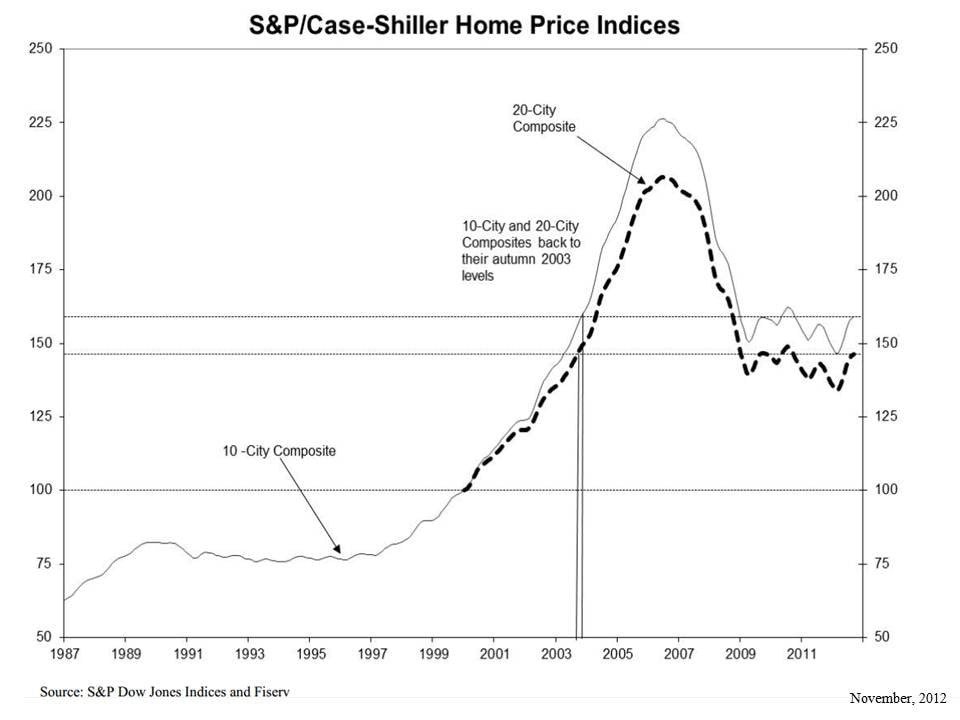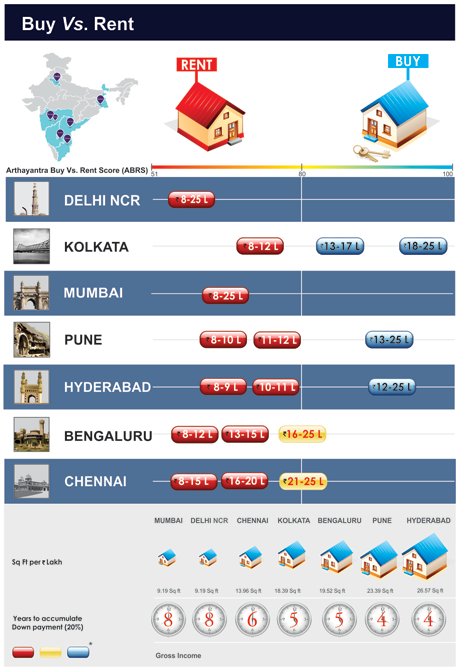Be honest, have you ever considered your role in your community when it comes to helping to uncover and end human trafficking? I had to ask myself the same question, because until I began working for my company, I was unaware of the extent of this issue, and how professionals in the Real Estate Industry have the ability to change it.

Image by Ira Gelb via flickr.com
Human trafficking is the act of recruiting, transporting, transferring, harboring or receiving a person through a use of force, coercion or other means, for the purpose of exploiting them (United Nations Office on Drugs and Crime). Although human trafficking has been going on for thousands of years, it was only made a federal crime in the United States in 2000 with the Passage of the Trafficking Victims Protection Act (TVPA). The most common cases involve commercial sex trafficking, and labor trafficking.
It may be something that you think could never occur on your property or maybe something you, like many Americans may not want to think about. If there has any been illegal activity on your multifamily property, there's a good chance that those involved may have been involved due to human trafficking. In an interview with the Rent Rite Directory's Joe Killinger, Laura DeMoss of Mosaic Family Services notes that 'Apartment managers and maintenance people are in a fantastic position to be able to uncover [these] cases.'
On-site staff of multifamily properties can be a huge help to Law Enforcement, if they know what to look for. Most cases are uncovered because someone did not have a good feeling about a situation that they had witnessed, and sought help. Law enforcement officials are trained to be somewhat suspicious, but as everyday citizens, we also need to be on the lookout for these types of situations. Bill Bernstein, Deputy Director of Mosaic Family Services reminds property managers and owners 'If you see something that looks suspicious, or that you feel uneasy about'.give somebody a call.'
It is estimated that approximately 700,000 to 2 million people are trafficked around the globe every year (Safe Horizon.com). There is such a range in the statistics because trafficking can be difficult to spot, and is an extremely covert and underground activity. If a person is in possession of drugs, the drugs themselves imply illegal activity, and are easier to find, confiscate, and convict.
Possession of a human being is a much harder area to prosecute. It is easier to move people from state to state, or country to country, which is why human trafficking has been named the fastest growing criminal industry (UN Refugee Agency). It is less risky to traffic a person than it is to traffic drugs, at which point human traffickers may then force their victims to commit crimes for them.
You can watch the interview in full below:
Human trafficking can happen to anyone, of any gender, nationality, age, and can happen anywhere. Here are some red flags to look out for:
- Too many people living in one apartment unit
- Abnormal amount of traffic to and from an apartment unit
- Locks on doors and windows to keep people in, instead of out
- Closely supervised tenants (restricted in movement)
- People who are always with others who must speak for them, but do not appear to know each other very well
- People who do not have access to their own personal documents
- People who are not allowed to drive themselves anywhere
- People who are picked up every day in large vehicles and who return at the same time every night
- People who show signs of abuse, malnourishment or fearfulness
Detective Ric Clark of the Balch Springs Police Department notes that just asking the right questions and getting to know someone can help provide vital information (note: not during the application process). In the cases of labor trafficking he has witnessed, he says asking about where someone is from, their accents, their families, their jobs and sparking conversation can be a good starting off point. Please be advised that many victims of trafficking often do not consider themselves victims, or are terrified for the safety of themselves or their families, so you may not get a yes or no answer from them, if directly asked.
Victims of trafficking are constantly being monitored by their traffickers, so if it appears as though someone else feels the need to stop the conversation you are having with a potential victim, it could be an indication that something is not right. If you have any concerns or believe that human trafficking is occurring, you can reach out to the National Trafficking Resource Center at 1-888-3737-888. If there is someone you believe may be a victim of human trafficking, but does not speak English or is unable to read, Jacob Haynes has created a series of comics that can be used to illustrate Human Trafficking to overcome any language barriers (see link below).
In a phone interview with Detective Manny Reyes from the Fort Worth Police Department, he noted that most instances of sex trafficking that he has uncovered, occur in apartment communities that are not gated, or have easy access. Most commonly, the issue is brought to the police department by a member of the leasing staff, managers, maintenance crew, or even a neighbor. Heavy traffic in and out of certain apartment complex units can be a clear indication. Detective Reyes says that the length of time people are in and out of the apartment can be an indication of what may be taking place. A shorter stay (60-90 seconds) is more likely a drug deal, while a lot of men spending 15-45 minutes in the units may be cause for a closer look for sex trafficking.

Real estate professionals can do their bit to end the misery of trafficking victims © silent_47 ' Fotolia.com
Please remember to keep an eye out for these types of situations, even if it may be difficult to imagine happening in your community. This type of crime can be reduced if people in positions with responsibilities to their communities know what to look for, and make sure to follow up.
Please contact Ryan Cauley at 1-855-733-2289 (www.therrd.com) for more information on our services.
About the Author: Elizabeth Whited is the Operations Coordinator at the Rent Rite Directory. She has written educational articles for multifamily magazines and Real Estate websites to help Property Managers and Owners improve their properties, in an effort to reduce crime in their communities. The Rent Rite Directory educates Property Managers and Owners at Crime Watch Meetings, and Crime Free Association Conferences, and works closely with law enforcement nationwide. For more information, visit www.therrd.com.





 The largest group of affiliated real estate agents from Costa Rica has just opened its fourth office, a new Re/Max Ocean Village. in Playas del Coco. The group specializing in property on the North Pacific Gold Coast, includes Re/Max Ocean Surf Realty, Re/Max Tres Amigos, Re/Max Prestige Properties and Re/Max Ocean Village, and offers Costa Rica real estate, vacation rental and relocation services through its existing three offices in Tamarindo, Hermosa and Panama.
The largest group of affiliated real estate agents from Costa Rica has just opened its fourth office, a new Re/Max Ocean Village. in Playas del Coco. The group specializing in property on the North Pacific Gold Coast, includes Re/Max Ocean Surf Realty, Re/Max Tres Amigos, Re/Max Prestige Properties and Re/Max Ocean Village, and offers Costa Rica real estate, vacation rental and relocation services through its existing three offices in Tamarindo, Hermosa and Panama.

 This acquisition is supposedly slated to grow Zillow's 'rental audience' as well as extend the company's marketing for rental pros.
This acquisition is supposedly slated to grow Zillow's 'rental audience' as well as extend the company's marketing for rental pros. Looking for a home for sale in suburban Chicago? If so, your new home search may be getting a little easier with the recent launch of Sobborgo.com. Although still in its early development stages, Sobborgo aims to be Chicago's most comprehensive real estate search site and will eventually serve the entire suburban region.
Looking for a home for sale in suburban Chicago? If so, your new home search may be getting a little easier with the recent launch of Sobborgo.com. Although still in its early development stages, Sobborgo aims to be Chicago's most comprehensive real estate search site and will eventually serve the entire suburban region.





 TAG Immobilien has acquired the residential branch of state-owned real estate firm TLG after winning a bid that will require a EUR 471 million investment. The sum to be paid as part of this deal, the biggest in the German property sector for 2012, also includes TLG's outstanding debt.
TAG Immobilien has acquired the residential branch of state-owned real estate firm TLG after winning a bid that will require a EUR 471 million investment. The sum to be paid as part of this deal, the biggest in the German property sector for 2012, also includes TLG's outstanding debt.






 Didn't I just say; 'feathering one's own nest' is smart for 2012 holiday buying? As chance would have it the Nest Thermostat is one of the coolest and most home efficiency oriented new gadgets on the market. At right around $250 bucks, this home thermostat actually learns user behavior and adjust your house's temperature accordingly. Talk about an 'easy button' for total home comfort!
Didn't I just say; 'feathering one's own nest' is smart for 2012 holiday buying? As chance would have it the Nest Thermostat is one of the coolest and most home efficiency oriented new gadgets on the market. At right around $250 bucks, this home thermostat actually learns user behavior and adjust your house's temperature accordingly. Talk about an 'easy button' for total home comfort!



